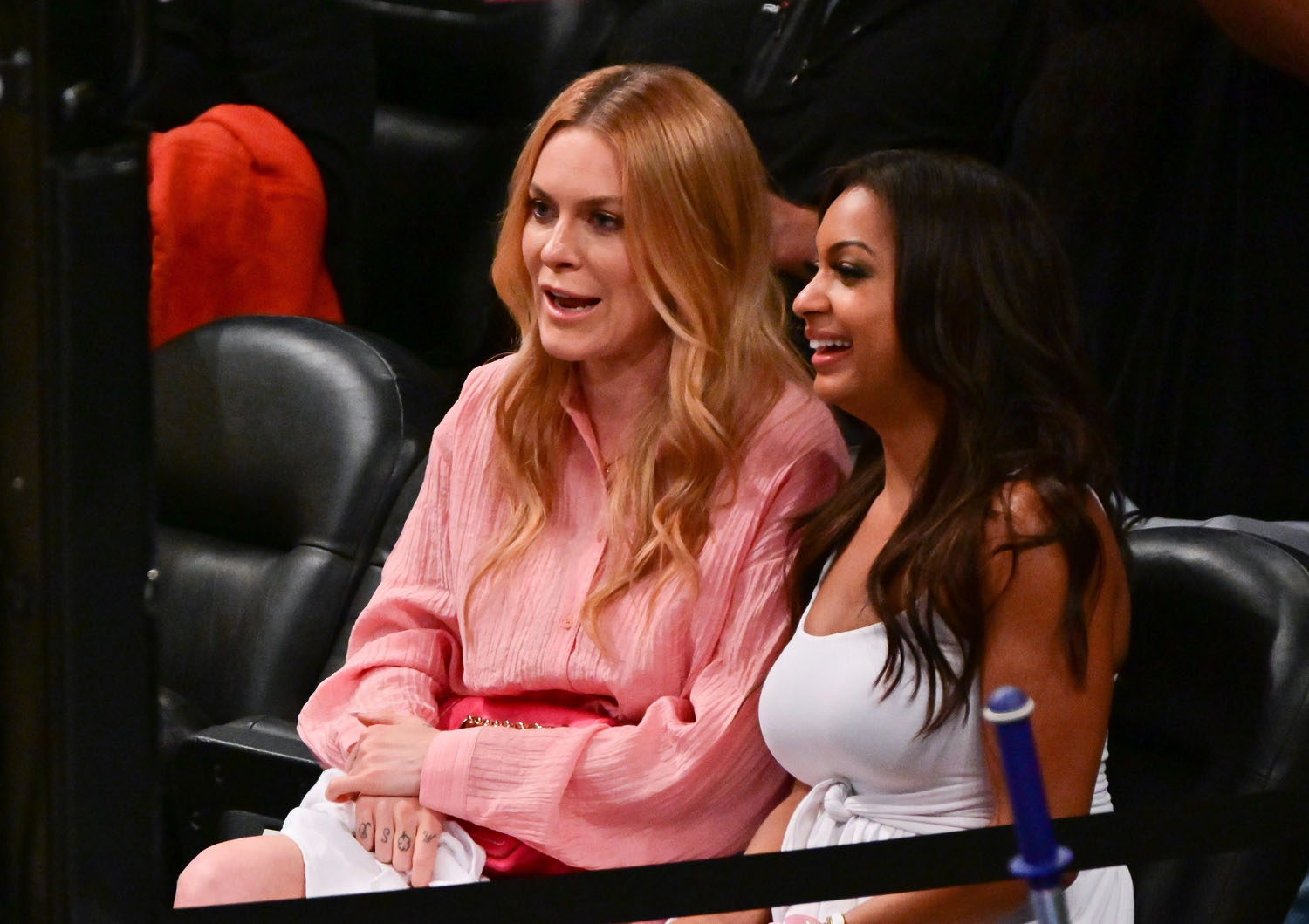The Housewives bombshell is here



“If you go to the whorehouse, you’re gonna get f---ed.”
That was one of the quotes Vanity Fair writer Anna Peele included from her interview with a Real Housewife who requested anonymity in the magazine’s piece about the "Reckoning Rocking Bravo". Upon reading this sentence, I immediately started calculating in my mind who could have possibly said it. I could totally envision someone like Sonja Morgan uttering this entire sentence. Heather Gay, maybe?
The anonymity in much of Anna’s piece is equal parts frustrating and enthralling. Because while it’s a fun little mind game trying to figure out which Housewife is behind what quote, it really does help solidify the fact that speaking to Vanity Fair for this kind of article, in any capacity, is high-risk.
Anna’s piece outlines that it is the result of a months-long series of conversations and interviews with current and former Housewives, producers and network staffers. And with all of their insights and anecdotes, she’s made an excellent case for what is driving so many reality stars to over-indulge in substances on and off camera, turn their backs on Bravo after leaving and, well, why they do it all in the first place.
Anna writes that money definitely plays a factor in women accepting these highly coveted roles. But it’s also about the clout, according to quotes from women like Leah McSweeney, a former Real Housewives of New York cast member, and a few other anonymous Housewives, one of whom described turning to her colleagues at last year’s BravoCon and posed the question:
“How do I ever be happy after this?”
As I’ve written before, I was at that BravoCon. And that was the closest in my life I’ve ever come to feeling like a peasant. It was just the sheer status imbalance of being around these women, adorned in jewelry that cost more than my entire net worth as a human being, and constantly being told that the money I paid to be there got me access but not that much access. So I really appreciate Anna speaking with Housewives who were candid and honest about just how much of a role the money and fame has played a part in all of this.
I think that equalizes us in some way. If someone threw a million dollars a season in my face, which is what the long-standing, highly valued cast members are raking in, I’d let cameras into my home, too. Hell, I’d do it for less than the $3,000 an episode Leah says she was offered.
I do think Vanity Fair did the piece a disservice by making Bethenny the main image of the story. I was concerned that we were going to hear what we’ve already heard, so many times before from her (which we still hear about throughout). It seems to be a thought others had, too, with some chiming in on social media, saying:
https://twitter.com/superficialxoxo/status/1719003373880402227?s=20
Having her picture on this article made me lose all interest
— Diary of Shame (@diary_of_shame) October 30, 2023
But the other part of my concern was that it wouldn’t be well-balanced enough for people to understand the full scope of the horrors that happen in the Bravoverse, and how, in some ways, the Housewives are victims of this reality TV machine, too. But Leah and Eboni really helped make these horrors clear.
Leah shared with Anna that she was nine years into her sobriety journey when she relapsed shortly before making her RHONY debut. The article actually starts off with her recalling the cast’s 2019 trip to Mexico, where she was so inebriated that she peed the bed and woke up the next morning not wanting to film. Leah says production kept insisting that she was “fine”, but ultimately, she ended up throwing up on the street and pulling her pants down in front of cameras, perhaps concerned it was going to come out of both ends.
While moments like these tend to perform well on camera, accepting that this wasn’t just some hilarious night of drinking too much, but a severe relapse from a woman who had managed sobriety for nine full years prior to this makes it sad – and that’s why the editing is so crucial.
Leah said that when she expressed concerns over the audience hating her to Andy ahead of her first season, he told her:
“People are gonna like you because we edited you well, so don’t worry.”
I’m not sure how much of it had to do with editing and how much of it had to do with Leah being in tune with like, reality, that made her such a fan favourite. We spent years watching Luann de Lesseps, Sonja Morgan and Ramona Singer be so embarrassingly rich and pompous that it was refreshing to see someone as down to earth as Leah come in and disrupt things in the way that she did.
It was a similar feeling (for me, anyway) when Eboni joined the cast as the show’s first Black woman since it premiered. But hearing about the racist atrocities that happened off camera was jarring, to say the least.
I was thrilled that Anna included Darian Edmondson’s perspective. Darian, a Black woman, was a producer brought onto the RHONY in 2021, the same year Eboni made her debut. Coincidence? You know it’s not. She described the infamous instance in which Ramona uttered the n-word to her off-camera, comparing it to a Yiddish term that was thrown out at her when she was younger. Darian said she brushed past the remark, but later became emotional.
“I should have said something…Eboni’s fighting this fight this season.”
Darian also recalled a day of filming when she and Eboni just cried together:
“Literally, we broke down hysterically and cried in each other’s arms. And I’ve never in my life in a decade of working in TV ever shown emotion like that with a cast member.”
You really have to read the full article to understand the absolute disaster that took place behind the scenes trying to get Ramona ousted over her racist remarks – which include but were certainly not limited to her uttering the n-word in front of a crew member, a Black crew member at that. There was also her discussion of Black fathers not being present, saying she felt like she had to “be careful” of everything she said around Black people, and don’t forget, she said Black people would ‘ruin’ the show. Oh, the irony. But I truly appreciated Anna highlighting just how much work Ramona secured from Bravo, even after RHONY as we knew it was taken off the air, and even after she was being investigated for her racist and long-documented behaviour.
By mentioning this, Anna was able to convey a point I recently made in a piece I wrote about the double standards that exist for Black and white housewives. The example I used was Tamra Judge, who verbally assaulted Andy Cohen at the Real Housewives of Orange County reunion and carried on like it was business as usual before boasting about having plans with Andy for later that week. Meanwhile, Black housewives have reported feeling like they had to walk on eggshells and say they were penalized for advocating for themselves.
It was a hard point to convey, mostly because there aren’t any words to quantify that experience, particularly when you’re not working with a lot of evidence. That feeling when you know that something is unfair or unjust. But Anna had the evidence, and not only did she put it on display, she provided the context needed to help people understand how it all feeds into the larger toxic culture that exists within reality TV, without over-informing or over-complicating it.
I think that’s why these deep dives are so important. The one-off articles help paint the picture, sure, and then we move on. But pieces like this really have the power to bring the reckoning Anna mentions in the title. And so far, it has.
Anna says that in late September, when reps from Warner Bros. Discovery, and NBCUniversal learned about the piece, Frances Berwick, entertainment chairman at NBCU sent a note to production partners. The note outlined new alcohol policies which included “expanded alcohol-related training to the cast, crew and production team.” Frances also wrote about improved mental health support, on-set psych support during filming and reunions. And Frances even said an on-set HR representative will be implemented for “shows where NBCU determines additional support may be warranted.”
These all sound like solid steps to filming shows that provide safe (well, safer) spaces for these women to film in. But at what cost? It’s not like these networks couldn’t afford the additional mental health and HR support. Look at the money they’re raking in. It’s because they know that the piss, the puke and the tears all make for good TV. And here we are, here I am, eating it all up.
I wrote above that hearing about the racism Eboni encountered was jarring. I suppose that’s not entirely accurate, because racism does not surprise me anymore, but it still disappoints me. What also disappoints me is how a network that has really capitalized so much off of the Black aesthetic, the Black experience, Black dialects, Black style and Black women, can fail to protect the very Black woman they thrust in the spotlight to save face. And the many others that came before her.
And what about Leah? Her issues with the show had nothing to do with her skin. Had she covered her tattoos and pretended to be thrilled about seeing Luann do burlesque yet again, perhaps she could’ve been the fourth woman in Sonja, Ramona and Luann’s white privilege circle. But they even failed her.
It’s beyond race. It’s beyond mental health. It’s beyond substance abuse. Racism, mental health and substance abuse issues all exist in societies driven by money. And in many ways, Bravo is very much its own society. It’s got a leader and people and places and things and institutions and it’s even got a convention. It’s a money-making machine, truly. But if it doesn’t stop to recalibrate and determine that direction is way more important than speed, they could lose a lot of viewers who can’t stand to stomach the ethical dilemma watching these shows can often inflict.